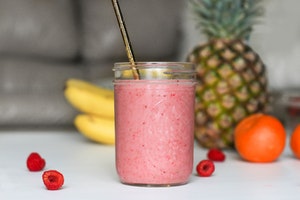
The new products are being developed as part of an EIT Food-funded project, led by sensory scientists at University of Reading, ONCOFOOD and will include a range of foods that address the nutritional, sensory and texture requirements of cancer patients that experience taste and smell alterations or have swallowing difficulties. New food technologies such as 3D food printing will be employed to develop foods particularly for patients that need a soft or pureed diet.
Cancer patients will be able to benefit from a new range of food products designed to help overcome sensory changes due to their treatment.
Dr Stella Lignou, Lecturer in Sensory and Consumer Science who is leading the project said:
“Foremost in our minds through this project is making food as enjoyable as possible for the many millions of people who have to go through cancer treatment. We know that senses can be affected by the oncological treatment, and also that malnutrition is a significant concern through the course of such treatment.”
“We’ve been using our experience in sensory science to design foods that are appealing and make a difference to cancer patients. By working together with them, we are trying to understand the changes that need to be made to food to retain the nutritious element while also being palatable. We’ve also developed a range of soft food alternatives for those who need them too.”
The products developed so far include soups and mousses in pouch packs but more products will be trialled next year.,.
Dr Bola Oloyede, the postdoctoral researcher working on the project said:
“We are currently recruiting two groups of participants to help us further develop the initial prototypes produced. You can take part in our study from the comfort of your home! The trials are open to people undergoing or who have undergone cancer treatments as well as healthcare workers of adult cancer patients who experience swallowing difficulties/dysphagia and require any type of diet modification”.
Professor Lisa Methven, Professor of Food and Sensory Science said:
“One of the key elements of this research is making sure that it reflects the real experiences of those who are undergoing cancer treatment. We’re honoured that patients are able to take time to help us develop new foods and we very much hope that we can use their experiences to make new food formulations that may make a small but significant impact in the future for people in a similar position.”
More information about the study please see video and follow the link:
https://www.eitfood.eu/projects/oncofood-new-food-solutions-for-cancer-patients-2020
Potential volunteers can find out more about the study on the Cancer Research patient involvement portal at: https://www.cancerresearchuk.org/get-involved/volunteer/patient-involvement/involvement-opportunities/study-food-solutions-for-cancer-patients
